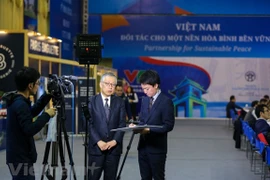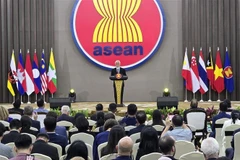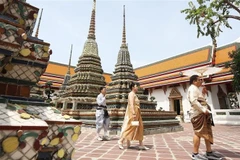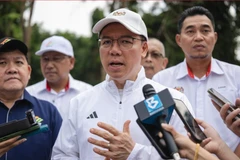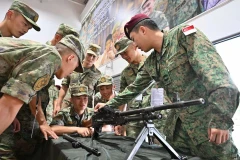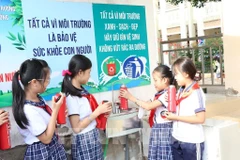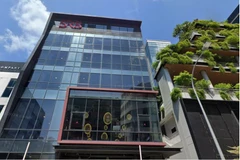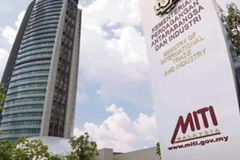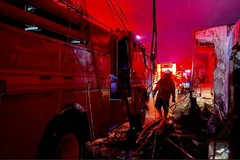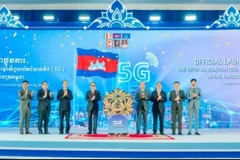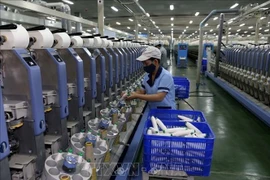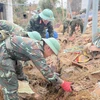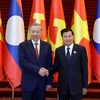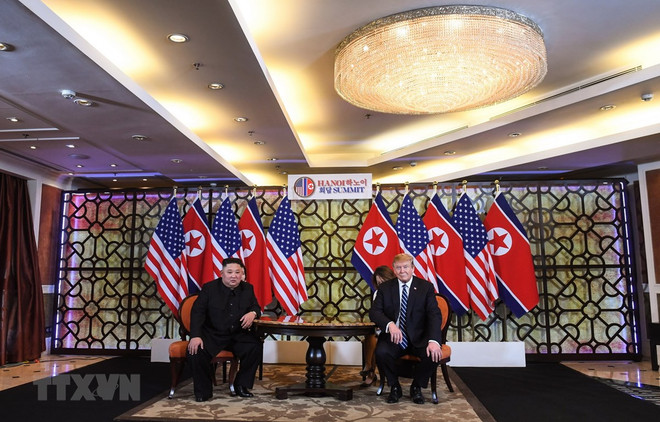 DPRK leader Kim Jong-un (left) and US President Donald Trump during their one-on-one meeting in Hanoi on February 28 (Photo: VNA)
DPRK leader Kim Jong-un (left) and US President Donald Trump during their one-on-one meeting in Hanoi on February 28 (Photo: VNA) Hanoi (VNA) – Whether the Democratic People’s Republic of Korea leader Kim Jong-un isready to give up his Yongbyon nuclear complex or not, and what US President DonaldTrump will give in return will be the center of their Hanoi declaration, YonhapNews reported.
At the close of their second summit in Hanoi, the two leaders are expected toadopt a declaration that many anticipate will put their countries' checkeredrelationship on an uncharted yet promising trajectory.
The focus of their talks will be how to flesh out the agreement they signed intheir historic first meeting in Singapore last year. At that time, they agreedto work toward the "complete denuclearization" of the KoreanPeninsula, establish "new" bilateral relations and make joint effortsto build a "lasting and stable peace regime" on the dividedpeninsula.
The Hanoideclaration is expected to detail on how the two countries can make progress onthe denuclearisation front. Speculation has been growing that the DPRK’s pledgeto freeze or dismantle key facilities in the Yongbyon nuclear complex, or giveup its future nuclear arms would make it into the declaration.
Meanwhile, the US-based media outlet Vox said that the DPRK may agree to stopproducing materials for nuclear bombs at the Yongbyon complex. In return, theUS would loosen economic sanctions against the East Asian country so thatinter-Korean economic projects can move forward.
Yonhap quoted MoonChung-in, special foreign policy adviser for RoK President Moon Jae-in, assaying that if the DPRK agrees to permanently dismantle the Yongbyon complex,it would "sufficiently" deserve the partial lifting of sanctions.
He once told reporters after a forum in Washington that the US may well givepartial sanctions relief if the DPRK permanently dismantles the Yongbyoncomplex because it is the first step towards an irreversible denuclearizationphase. However, he said that complete sanctions relief may be difficult.
Other U.S. concessions may include increased humanitarian aid and an easing ofrestrictions on its citizens' travel to the DPRK.
On the "new relations" part, the Hanoi declaration could include anagreement to install a U.S. liaison office in Pyongyang and a DPRK one inWashington. The establishment of such offices is seen as an initial processtoward normalizing bilateral ties.
Also, Vox reportedthat the two countries may reach consensus on the signing of a peacedeclaration to symbolically end the 1950-53 Korean War.
As another concession, the DPRK may agree to repatriate more remains of US troopswho died during the Korean War, according to Vox. Last year, it returned theremains of 55 US service members.-VNA
